Importance of Theatre for Kids
By Pinkey Sharma |
Date 08-08-2024

Table of Contents
- Theatre for Kids: A Foundation of Skills to Last a Lifetime
- Define Theatre and Theatre Definition
- Theatre Games for Kids: Fun and Educational Activities
- Activities for Kids in the Theatre: Engaging and Enriching Experience
- Attributes of a Good Children's Theatre Program
- Explore the Types of Stages in Theatre
- Conclusion: The Lasting Impact of Theatre on Children's Development
- FAQs:
Admissions Open for
The role of theatre in the process of education and self-development is timeless. It has been one of the natural channels for telling stories or expressing oneself and reflecting on culture. It can be a game-changer for those keen to learn and establish a career in this field.
It links them with a number of developmentally enriching advantages that extend into other areas of life, even beyond the stage. In this article, we'll explore why theatre is imperative for the development of children and how theatre programs support creativity, confidence, and communication skills. Second, it will give guidelines on what to look for in a quality theatre program and highlight some really engaging theatre activities and games for little learners.
Theatre for Kids: A Foundation of Skills to Last a Lifetime
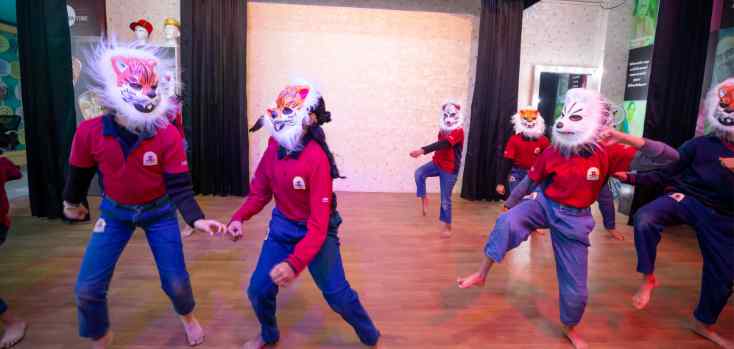
Theater for children is so much more than after-school activity. It's a multifaceted art that melds acting, storytelling, music, and movement. Being a part of theater allows kids to excitedly engage themselves in various skills that hold a central place in any child's development. But what precisely is theater, and why is it so great for children? Let’s dive in further to know more on this.
Define Theatre and Theatre Definition
Broadly speaking, theatrical performances are performing arts that make use of live performers to introduce enacted events before the audience. These definitions mean acting, stagecraft, scriptwriting, and directing combined together. In children's theatre alone, it is about creating a fun and non-judgmental atmosphere where kids can discover their creative and imaginative side.
Theatre gives children the liberty to step out of their comfort zones and relate to various roles and perspectives. By doing so, it makes them much more empathetic because they start to grasp and get to work on portraying what somebody may feel or go through. Besides, the social theatre provides a structured space for kids to practice verbal and non-verbal communication and constantly work on them. Through regular participation in theatre, children gain confidence in expressing themselves and collaboration with others.
Moreover, the theatre can foster the development of one's mind. The learning of lines, choreographs, and nuances of characters' motivations inherently calls for bearing, discipline, and critical thinking. Children in theatre have a better approach to academic challenges because they learn to have strong problem-solving and analytical skills.
Essentially, then, children's theatre is education par excellence: personal growth, creativity, and enlightenment regarding the world that lies before them. By using theatrics in their lives, children can provide themselves with such skills to last them through all of life's processes.
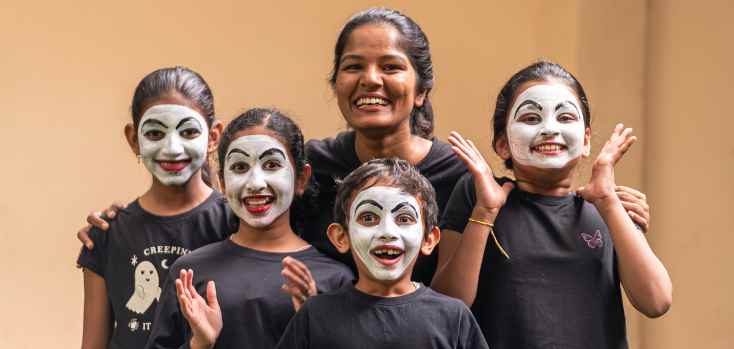
Theatre Games for Kids: Fun and Educational Activities
Theatre games introduce children to theatre in an easy and light-hearted way. They can be used to develop creativity, teamwork, and improvisation techniques. Here are some of the popular theatre games for young ones, which can be part of their developmental journey:
1. Freeze and Justify
It is designed to develop quick thinking and improvisation. Two players start improvising a scene, and at any time, another player yells out, "Freeze." The players have to freeze exactly where they are. A new player steps in to take the place of one of the players, assuming the same exact physical pose, and starts to justify posing in the position with a completely new sceneing. In such an activity, the children get stimulated for spontaneity and creativity because they need to think on their feet and accommodate new scenarios.
2. Mirror Exercise
This is a theatre game where kids pair up to stand opposite one another, one being the leader and the other the follower. The leader begins to move at slow pace by deliberate movement, while the other party tries their best to mirror the movement. After several minutes, switch over and change roles. This drill will help the children develop focus, concentration, and body language sensitivity.
3. The Emotion Bus
In this game, children can act out riding on a bus that isn't really there, with one of them as the "driver." While the children are occasionally prompted about different feelings—for example, happy, sad, angry, scared—the children have to portray the given emotion as passengers. This exercise is meant to help children understand a variety of emotional feelings and to develop their ability for expression through facial expressions, body movement or language, and intonation.
4. Zip, Zap, Zop
Zip, Zap, Zop falls into the category of great classic theater games that enable focus, coordination, and teamwork. The players stand in a circle, and then one player begins by calpping his hands together and pointing at another player while saying the word "Zip." Next, the second player does it too, this time saying the word "Zap." Then the third one does it with the word "Zop." The action just keeps going in this pattern, so players must react quickly and accurately. This activity sharpens children's reflexes and creates a sense of unity in the group.
5. One-Word Story
This is a game where children will sit around in a circle and subsequently, word by word, come up with a story. One child starts with saying one word, which is followed by another, and so forth—thereby constructing a coherent and exciting story while working as a team. This game allows for creative thinking and strengthened communication since children have to really listen and add to each other's contributions. Theatre games are among one of the best ways to be introduced to the bare bones of theatre while having fun and getting lots of your kids engaged. These kinds of activities raise creativity, improvisation, teamwork, communication, and rate of expression of emotion. By applying the theatre games in their lives, the children learn how to have fun when performing and also acquire life skills that are very important.
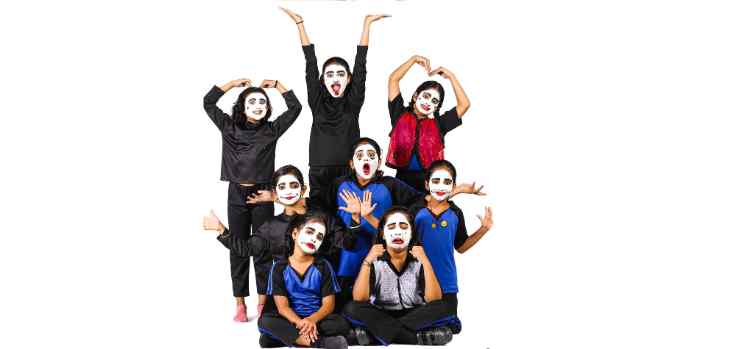
Activities for Kids in the Theatre: Engaging and Enriching Experience
Theatre games for children are much more structured and involve activities that will enhance their development further. These activities have acting, storytelling, music, movement, etc. and provide an all-round introduction to the theatre world. Here are some theatre activities for children that can foster their creativity, confidence, and communication skills:
1. Dramatization of Stories
In this activity, children enact a popular story or fairy tale. They can design simple costumes and props and take on different roles to act out in front of an audience. The children will engage in imaginative thinking and collaboration around solving creative problems as they work together to understand the story and present it uniquely.
2. Puppet Theatre
Puppet theater is an activity whereby children create and control puppets to act out a story or scene. This activity helps children experience different characters and voices while developing fine motor abilities and hand-to-eye coordination. Puppet theatre will also help children develop creative ways of storytelling and build confidence in performance.
3. Workshops in improvisation
Improvisation workshops concern themselves with the development of spontaneity and quick thinking by children. Normally, a number of improvisational exercises and activities would be contained in these workshops to make children come up with scenes, characters, or scenarios in the absence of a predetermined script. Improvisation inculcates flexibility and malleability due to the unexpected situations that they expose children to and the collaboration required between peers.
4. Musical Theatre
There's a place for acting, singing, and dancing in musical theatre; it, therefore, offers good all-around theatre experience for a child. Being part of a musical play develops vocal and physical skills while building a sense of music and rhythm. Such activity lets children cooperate and work with others, as they try to produce a unified and enjoyable play.
5. Playwriting and Script Analysis
Through the exercise of playwriting and script analysis activities, children are involved in a process of creating and understanding written theatrical works. Children may write short plays, scenes, or monologues, and then act them out with an audience. It is also gaining practice in encouraging creative writing and critical thinking since children will have to accommodate character development, plot structure, and dialogue in their plays. Furthermore, the analysis of existing scripts encourages children to gain deep insight into the conventions pertaining to storytelling and theatre.
There is no end to self-development and creative activities available for children through theatre. The kids improve their self-confidence by enhancing their communication skills through such activities and learning to be more creative. The children enjoy their performance and discover individual talents or special abilities that set them apart, whether it involves dramatization of stories and puppet theater, improvisation workshops, musical theater, or playwriting.
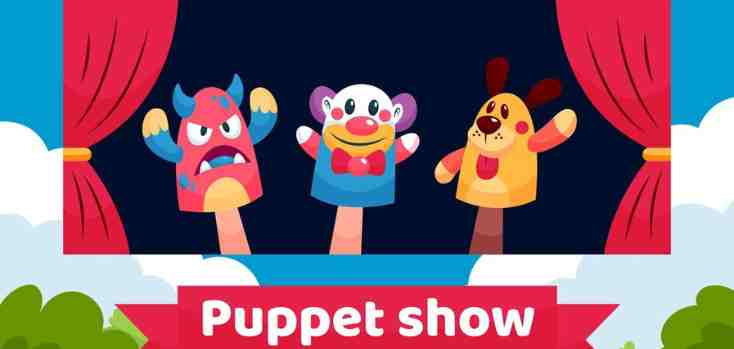
Attributes of a Good Children's Theatre Program
When looking for a theatre program for your child to join, there are certain criteria that you need to use to guide you in knowing what would work best to provide them with support, especially through this learning and development system. Some attributes that form a good theatre program for kids include:
1. Qualified and Experienced Instructors
First and foremost, success in a theatre program is greatly hinged on the qualifications and experience of the instructors. Ensure that it is administered by instructors with a background in theatre education and experience working with children. Skilled instructors are able to set up a positive atmosphere, give constructive feedback, and help children develop their talents.
2. Age-Appropriate Curriculum
A good theatre program should introduce an age-appropriate curriculum tailored to the developmental needs and abilities of the children. These will include a variety of fun, engaging activities and exercises that will enhance creativity, confidence, and communication skills. An age-appropriate curriculum ensures that children are challenged and engaged without being overwhelmed.
3. Collaboration or Teamwork
Theatrical art in itself is collaborative as well. A good theatre program originally had to stress the importance of teamwork, cooperation. Look for programs that allow children to work together and support each other, encouraging a sense of community and unity among the participants.
4. Creativity and Self-Expression
A good theatre program is supposed to give rise to creativity and self-expression, allowing children the exploration of imagination in the quest for developing their own voice. Such activities include acting, improvisation, playwriting, and storytelling. Programs offering the opportunity for children to compose and perform their own works are especially helpful.
5. A Safe and Supportive Environment
Now, this would be a space where children feel safe to take risks and express themselves—and that begins by laying down a culture with respect, inclusivity, and positive reinforcement. Programs prioritizing children's emotional well-being at the forefront and ensuring that at the very core of the program, children have a sense of belonging. This is very instrumental in setting them up to succeed both on and off the stage. Looking for these qualities when your child chooses their theatre program will help ensure they have a positive and enriching experience. A good theatre program will give children life skills and foster creativity; it will help them create lifetime memories and friendships.
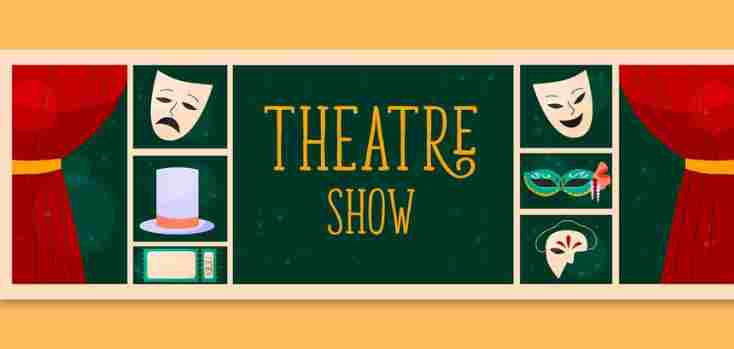
Explore the Types of Stages in Theatre
To fully appreciate the world of theatre, it is essential to know the various stages used in
theatrical productions. All forms of stages pose specific challenges as well as distinct opportunities for actors and directors. Among the shared forms of stages in theatre are the following:
1. Proscenium stage
The Proscenium stage, is the most common theatre program, with most of this type having an arched "proscenium" that frames the performance area. This provides a clear divide between audience and performers. The audience sees the action from only one side, providing a traditional "picture frame" perspective.
2. Thrust Stage
Since it extends into the audience on three sides, a thrust stage creates an intimate setting that permits a more dynamic interplay between actors and audience members. In addition, it can be extra-appealing to the spectators, and at the same time, be an optimum point for special effects for certain tasks.
3. Arena Stage
The last type of surrounded stage is the Arena Stage, or central stage, also known as "theatre in the round," in which the performance space is in the center, surrounded by the audience on all sides allowing for a 360-degree experience. In this way, it dissolves the audience-performer conventions that have been so defined historically and implies a sense of shared space between themselves and the audience.
4. Black Box Theatre
This is theatre (US) where the setting allows for the most versatile and effective physical configuration and provides the most manageable of all staging conditions, as well as the greatest advantages in the use of scenery.
5. Outdoor Theatre
Outdoor theatre stages are set up in open-air environments, such as parks, amphitheatres, or gardens. These stages capitalize on the natural surroundings to create a unique and dynamic performance experience. Outdoor theatre requires careful consideration of factors such as weather, acoustics, and lighting. It is an excellent option for productions that seek to connect with nature and provide a memorable experience for both performers and audience members. Understanding the different types of stages in theatre can enhance children's appreciation for the art form and provide them with a deeper insight into the intricacies of theatrical production. Each stage type offers distinct possibilities for storytelling and performance, making theatre a rich and diverse field for exploration and creativity.
Conclusion: The Lasting Impact of Theatre on Children's Development
Theatre offers a unique and powerful platform for children's development, providing opportunities for creative expression, confidence-building, and effective communication. Through theatre programs, children can explore various aspects of performance, from acting and improvisation to storytelling and playwriting. Participation in theatre helps children develop empathy, problem-solving skills, and teamwork abilities, which are essential for their personal and academic growth.
By engaging in theatre activities and programs, children can discover their passions, build lasting friendships,and create memorable experiences. Parents can support their child's developmental journey by selecting high-quality theatre programs that prioritize creativity, collaboration, and emotional well-being. Whether through theatre games, structured activities, or collaborative performances, children's involvement in theatre can leave a lasting impact on their lives, nurturing their growth and helping them become well-rounded individuals. As you consider introducing your child to the world of theatre, remember that the benefits extend far beyond the stage. Theatre can shape young minds, foster emotional resilience, and provide a foundation for lifelong learning and personal growth. By nurturing your child's interest in theatre, you are helping them develop into confident, creative, and empathetic individuals who are well-equipped to navigate the complexities of life.
Encourage your child to explore various aspects of theatre, from acting and improvisation to playwriting and technical production. Celebrate their achievements, no matter how small, and support their journey with enthusiasm and pride. The world of theatre is vast and full of possibilities, and with your encouragement, your child can discover the magic and wonder that it has to offer. Ultimately, the importance of theatre for children's development cannot be overstated. It is an art form that fosters growth, creativity, and connection, providing children with the tools they need to thrive both on and off the stage. Embrace the power of theatre and watch as your child blossoms into a talented and confident.
FAQs:
1. What is the purpose of theatre for children?
The purpose of theatre for children is to develop creativity and imagination while offering life values and lessons. Besides, it helps develop a child’s emotional intelligence, social capabilities, and cultural awareness.
2. What is the importance of a theatre?
Theatre nourishes the understanding of culture and society and acts as a effective platform for story narration or expression. It fosters creativity, empathy, and community engagement.
3. What are the benefits of theatre in education?
Theatre in education improves creativity, critical thinking, and communication skills while increasing empathy and teamwork. It facilitates personal growth and confidence and makes learning more interesting and memorable.
4. Why do children role-play theatre?
Role play in theatre gives students a broader perspective to perceive things in their day-to-day lives. It increases their imagination and will help them develop social skills, self-expression, and emotional development through creative storytelling.
Liked what you read? Feel free to share this article with your friends and spread the knowledge!
Related Blogs
Correct theatre program for your child: Find out how to select the ideal theatre program for your child with our tips.
Basic Concepts in Theatre for Kids: Learn the basics of theatre for kids
Schools In Popular Cities
CBSE Schools in Bangalore | CBSE Schools in Mumbai | CBSE Schools in Pune | CBSE Schools in Hyderabad | CBSE Schools in Chennai | CBSE Schools in Gurgaon | CBSE Schools in Kolkata | CBSE Schools in Indore | CBSE Schools in Sonipat | CBSE Schools in Delhi | CBSE Schools in Rohtak | CBSE Schools in Bhopal | CBSE Schools in Aurangabad | CBSE Schools in Jabalpur | CBSE Schools in Jaipur | CBSE Schools in Jodhpur | CBSE Schools in Nagpur | CBSE Schools in Ahmednagar | CBSE School In Tumkur
Other Related Sections
NCERT Solutions | Sample Papers | CBSE SYLLABUS | Calculators | Converters | Stories For Kids | Poems for kids
CBSE Schools In Popular Cities
- CBSE Schools in Bangalore
- CBSE Schools in Mumbai
- CBSE Schools in Pune
- CBSE Schools in Hyderabad
- CBSE Schools in Chennai
- CBSE Schools in Gurgaon
- CBSE Schools in Kolkata
- CBSE Schools in Indore
- CBSE Schools in Sonipat
- CBSE Schools in Delhi
- CBSE Schools in Rohtak
- CBSE Schools in Bhopal
- CBSE Schools in Aurangabad
- CBSE Schools in Jabalpur
- CBSE Schools in Jaipur
- CBSE Schools in Jodhpur
- CBSE Schools in Nagpur
- CBSE Schools in Ahmednagar
- CBSE School In Tumkur

Call Us to know more about Orchids
Swipe Up

















